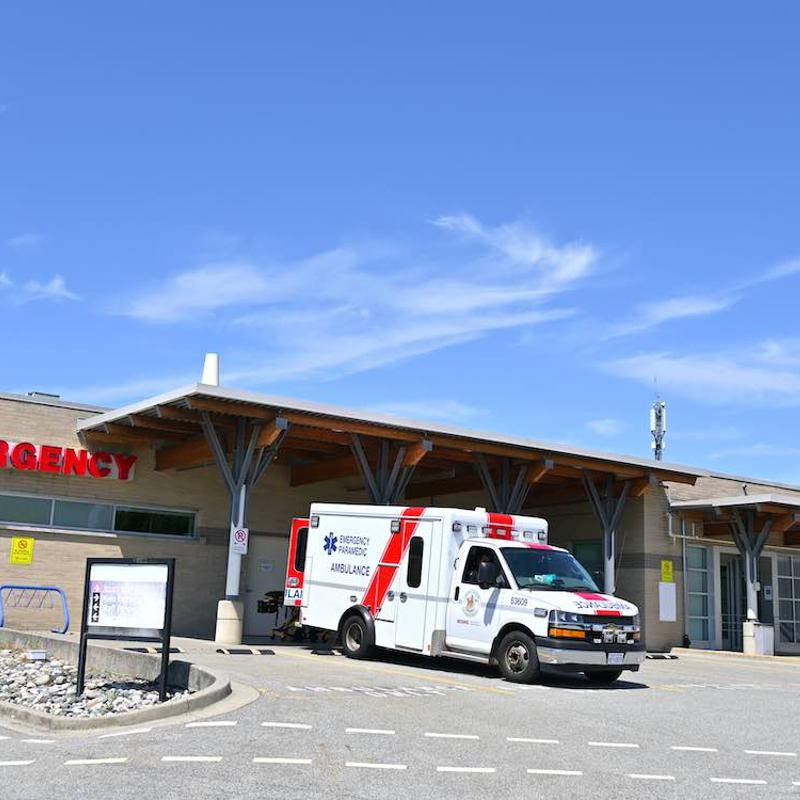In a statement to The Tyee, the Ministry of Public Safety and Solicitor General says it has been working closely with police to ensure officers have access to training on decriminalization and ‘how to reposition substance use as a health issue.’ Photo for The Tyee by Jen St. Denis.
Only two-thirds of officers had completed the first phase of training when the province’s pilot came into effect last year.
When British Columbia’s drug decriminalization pilot project came into force earlier this year, only two-thirds of police officers had been trained in what that meant, The Tyee has learned.
This comes from a document accessed via a freedom of information request that laid out the meeting minutes of the province’s Mental Health Working Group back in January 2023.
As of Jan. 30, 2023, 66 per cent of all frontline officers had been given training on decriminalization, according to the FOI.
The pilot project, which made it legal for people 18 years and older to carry a combined total of 2.5 grams of opioids, crack, powder cocaine, meth, ecstasy or MDMA, kicked off the next day. The pilot will run until Jan. 31, 2026.
Eleven months later, there are still municipal and RCMP officers who have never been trained in what decriminalization is and what it means for police officers.
Prior to the pilot you could be arrested for possessing these drugs and, depending on the substance, amount and previous offences, could face fines or even jail time.
As of Dec. 1, 2023, 88 per cent of frontline police officers have completed the first phase of two parts of the decriminalization training, according to an emailed statement from the Ministry of Public Safety and Solicitor General. The ministry did not provide numbers on how many officers had completed both phases of training.
In its statement the ministry said it has been working closely with police leadership to ensure officers have access to necessary training on decriminalization and “how to reposition substance use as a health issue.”
Get our stories delivered to your inbox every morning for freeEmailSUBSCRIBE
“The training for police ensures that they understand how decriminalization addresses stigma, their role in the successful implementation of decriminalization and the importance of a public health approach to substance use,” the statement continued.
The ministry said it “strongly recommends the training for all officers” but stopped short of saying if it is mandatory.
In September the province passed Bill 34, which amends the pilot project by prohibiting drug use or possession near doorways, bus stops and other public places like parks.
The Harm Reduction Nurses Association launched a civil claim against the province in early November in response, saying that the amendments would put the lives of people who use drugs in danger during the ongoing public health emergency by making people use alone and indoors, where there are fewer people available to help in the event of an overdose.
On Dec. 29, 2023, the B.C. Supreme Court granted a temporary injunction that will pause the implementation of the decriminalization amendments in Bill 34. This will give the court time to assess whether or not the update violates the Canadian Charter of Rights and Freedoms and whether the update is within B.C.’s constitutional jurisdiction.
Police have received an infographic about the new limitations in Bill 34 and the province has worked with police leadership to make sure officers are “comfortable” with the new limitations, the ministry added.
According to the documents received in the FOI, as of Jan. 30, 2023, the Metro Vancouver Transit Police had the most trained officers with a 96 per cent completion rate, followed by the Central Saanich Police Service and the Delta Police Department, each with an 87 per cent completion rate. At the same time the Nelson Police Department and the Stl’atl’imx Tribal Police had a zero per cent completion rate.
At that time the RCMP had a 64 per cent completion rate with the Island district in the lead with 72 per cent.
An updated breakdown of training completion rates was not provided to The Tyee.
How the pilot is working on the ground
Martin Steward, a Vancouver Area Network of Drug Users board member, said he thinks cops understand the 2.5-gram limit but not how the pilot was supposed to shift drug use towards the public health realm. The province created a “legal limit” rather than a decriminalization pilot, he said.
Steward said he’s witnessed Vancouver police officers stop people and ask how much they’re carrying. Officers carry scales, he said, and if your drugs weigh more than 2.5 grams they will be confiscated and you can be arrested.
Steward said his wife was recently stopped by police and had the 2.3 grams of drugs she was carrying confiscated because the cop read the scale “backwards” and said it was 3.2 grams.
“It’s about the size of a quarter. She gave it up even though it’s quite a bit of money,” he said.

Advocates Win Injunction Blocking BC’s Drug Decriminalization Rollbacks
Vancouver Police Department spokesperson Sgt. Steve Addison contested this and told The Tyee VPD officers have not been issued personal scales to weigh drugs. “Whenever illicit substances are seized and held by police, they are weighed prior to being secured in evidence lockers,” Addison said.
When The Tyee asked the Vancouver Police Department how many officers had been trained on decriminalization as of January 2023, and then in December 2023, Addison said that information would need to be accessed through a freedom of information request.
The 2.5-gram limit affects low-income people in different ways, Steward added.





